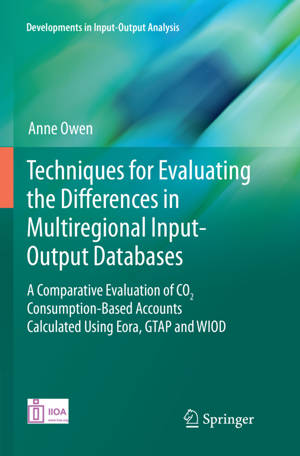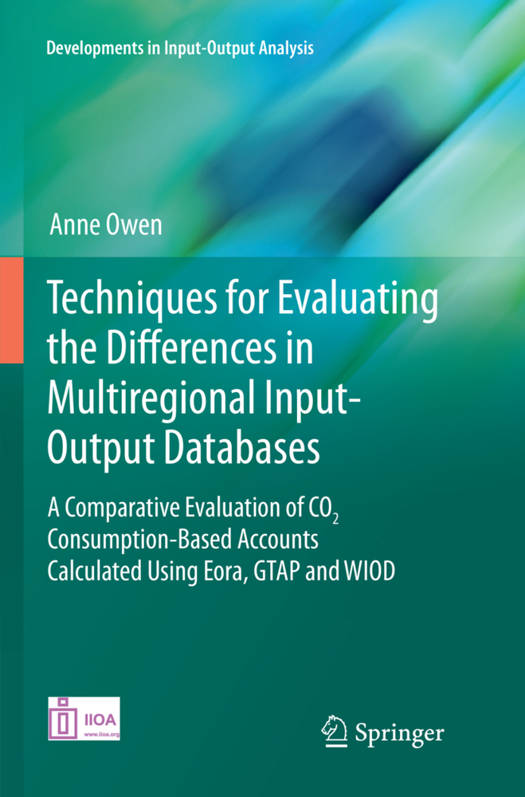
- Retrait gratuit dans votre magasin Club
- 7.000.000 titres dans notre catalogue
- Payer en toute sécurité
- Toujours un magasin près de chez vous
- Retrait gratuit dans votre magasin Club
- 7.000.0000 titres dans notre catalogue
- Payer en toute sécurité
- Toujours un magasin près de chez vous
Techniques for Evaluating the Differences in Multiregional Input-Output Databases
A Comparative Evaluation of CO2 Consumption-Based Accounts Calculated Using Eora, Gtap and Wiod
Anne OwenDescription
This book introduces the Eora, Global Trade Analysis Project (GTAP) and World Input-Output (WIOD) databases and provides detailed metadata on the data sources, database structures and construction techniques used to build each system. It offers a detailed account of how multi-regional input-output (MRIO) databases are used to calculate consumption-based accounts - guiding the reader through each mathematical step and explaining the associated equations. It demonstrates that different MRIO databases calculate different national level consumption-based CO2 accounts. If these results are to be used as evidence in climate policy-making, analysts need to be confident about the accuracy of the databases and understand why the results differ.
It carefully explains the mathematical equations behind each technique and provides a link to a repository where the reader can access specially prepared MATLAB functions associated with the techniques.To make meaningful comparisons between the three MRIO databases, each is mapped to a consistent classification system comprising 40 countries and 17 sectors. Further, readers can access the aggregated databases using the link provided. The effect of this aggregation is shown to be minimal, so readers can be confident that the aggregated versions of each database reflect the full-sized versions.
The book concludes by making recommendations as to how future MRIO databases could be accurately and consistently constructed and how they should be used in policy-making in light of the findings.Endorsement
Anne Owen did a splendid job in comparing the most important Global Multiregional Input Output databases (GMRIO) available. She probably is the first to develop a good understanding what factors in GMRIO construction really contribute to uncertainties in carbon footprint analysis. A great achievement, packed in easy to understand language!Prof. Arnold Tukker
Scientific director CML Leiden, NL
With its thorough investigations and clear explanations of the differences in MRIO databases and outcomes, this book is compulsory reading for both skilled practitioners and scholars when starting any input-output analysis in a multiregional context.
Dr. Harry C. Wilting
Senior researcher, environment and economics
PBL Netherlands Environmental Assessment Agency, NL
Prof. Richard Wood
Industrial Ecology Program
NTNU, Norway
Spécifications
Parties prenantes
- Auteur(s) :
- Editeur:
Contenu
- Nombre de pages :
- 217
- Langue:
- Anglais
- Collection :
Caractéristiques
- EAN:
- 9783319846828
- Date de parution :
- 04-05-18
- Format:
- Livre broché
- Format numérique:
- Trade paperback (VS)
- Dimensions :
- 154 mm x 235 mm
- Poids :
- 485 g

Les avis
Nous publions uniquement les avis qui respectent les conditions requises. Consultez nos conditions pour les avis.






